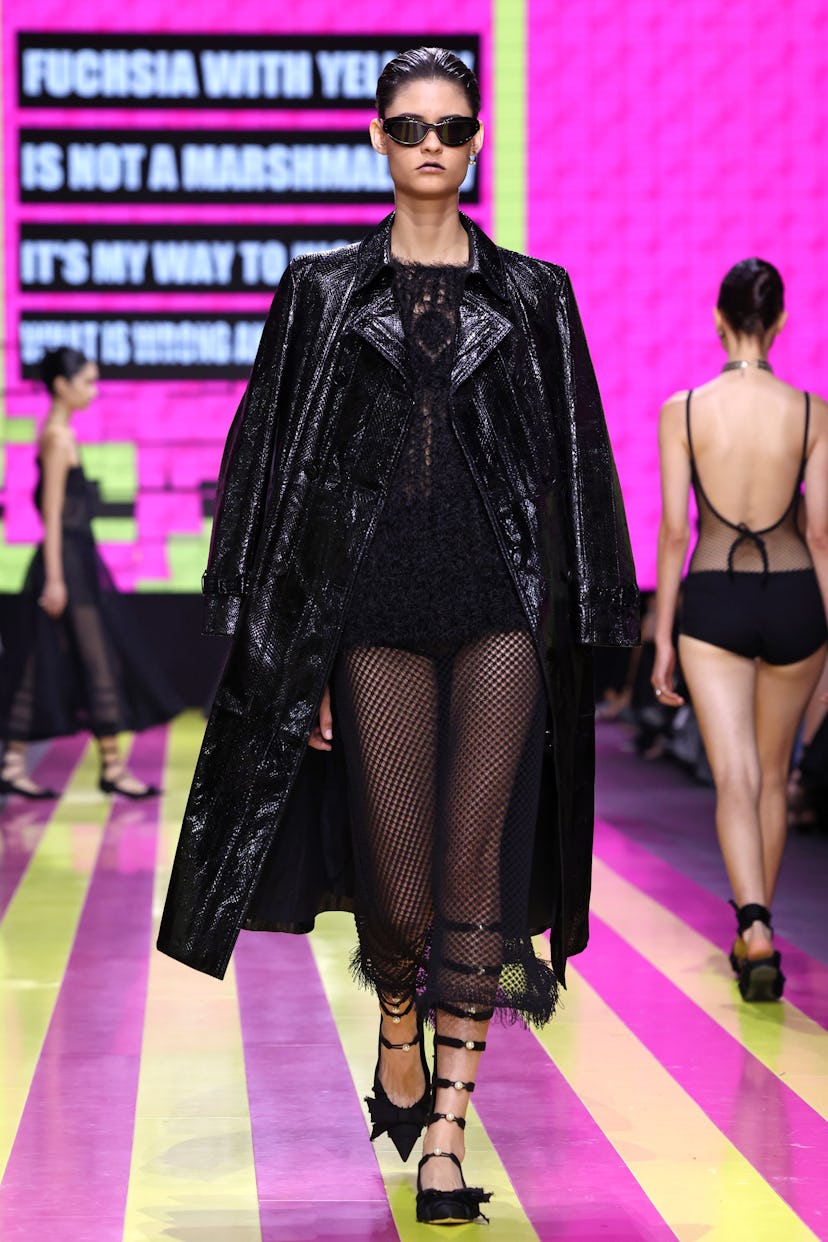At Dior, a Rebel Spirit Fueled by Femininity

Dior’s spring 2024 collection presented a juxtaposition of femininity and feminism, with conceptual odes to women as witches in a male-dominated world, plenty of reworked tailoring, and a newfound dark edge.
For the September 26 show held inside Tuileries Garden, the artist Elena Bellantoni created an immersive video collage that covered the walls of the venue with imagery of stereotypical vintage ads and idealized housewives. Phrases including “Capitalism won’t take her where she really wants to go” and “The cutest housewife, the cleanest wash” flashed as models walked by in sheer black dresses, off-the-shoulder button-down shirts, and floor-length coats. Of the 78 looks, the majority were rendered in black, white, and shades of neutral tans and beiges.
“One of the most important silhouettes is the reference of the Abandon,” Maria Grazia Chiuri, Dior’s creative director, told W backstage after the show. “This dress Dior did in 1948 expresses a lot of sensuality and I wanted to transform in a contemporary, soft way: with shirting, with knitwear, with dressing in cotton.”
The collection presented more of a rebel spirit compared to what we’ve previously seen from Chiuri’s Dior; there was a parade of black lace dresses that closed the show, as well as ample amounts of flowing, sheer gowns in gauzy charcoal hues. That sentiment was even carried through to the beauty side—where Peter Philips, creative and image director of Christian Dior makeup, lined the center of each and every models’ lips in black eyeliner. (Yes, you read that correctly.) “Maria Grazia felt strongly about what she wanted to say about women being seen as witches for many generations,” Philips, speaking before the show, said of the look. “So it takes on that Gothic, rebellious look, but it translates into something wearable.”
Chiuri used thick-cut, swooshing fringe on little black dresses to chic effect; gossamer sheer knits were like a love letter to the craft of textiles. A series of ivory crochet pieces were standouts and had a unique, vintage look. Prints—of maps and sunbursts—were abstracted and strategically blurred to perfection; they looked like cobwebs from afar. And the Mille-fleurs, so iconic to Dior, went to the dark side in a new transformation that mirrored X-rays.
“It’s important to create a collection that can be an answer to our time now,” Chiuri added of her collection. “It is too ambitious to think of the future and probably too nostalgic to think too much of the past.”